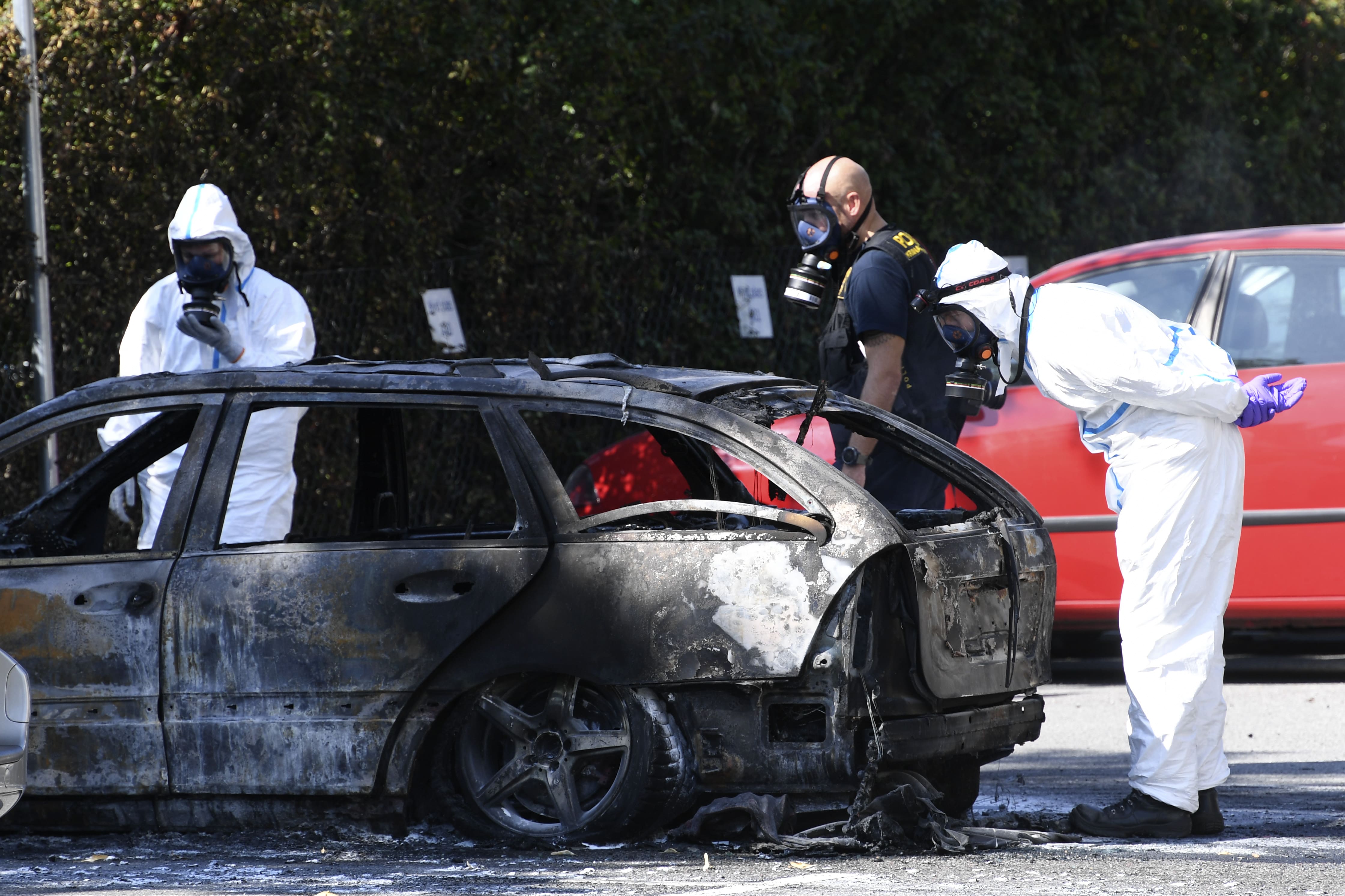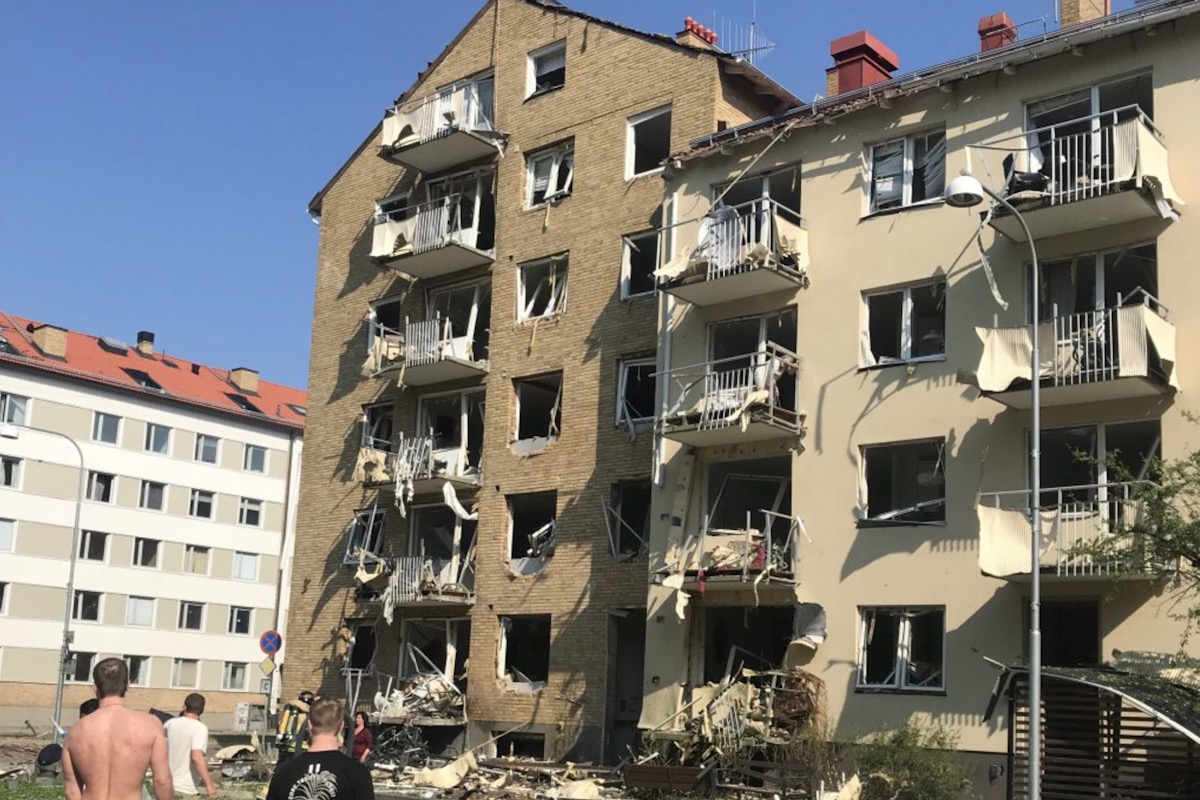recent
Abandoning Malmö to Its Criminals
The explosion happened three blocks away, but the sound had become so familiar that I went back to sleep without even getting out of bed to check on my twins.

“I think they just shot someone right across from my balcony,” my friend told me.
The gunshot rang out even as we were texting about another recent act of violence here in the Swedish city of Malmö—a car bomb that went off in a residential area close to my home.
Acts of violence occur so frequently in Malmö that news of one blurs into the next. This year, there already have been 29 explosions in a city of just 320,000. Sweden as a whole is on pace for about 150—or about three per week (as Quillette has reported previously). These are attacks by criminal gangs that usually target other criminals. But the victims are sometimes innocent bystanders. In one recent case, for instance, a female student was severely injured in the face when she happened to pass by a shop that exploded in Lund, a ten-minute car ride from Malmö. The more spectacular attacks have left whole cities such as Malmö fearful and traumatized, as a grandmother explained in a recent Facebook post about a bombing that blew out the windows of a residential building where her grandchildren were sleeping—”… two very frightened Swedish children, whose safe existence just fell apart.”
Writing for the newspaper Expressen that same day, Malmö-based journalist Fredrico Moreno likened his city’s bombing epidemic to a terror spree: “The bombs that wake us at night, that explode so that glass windows fly into bedrooms, have taken thousands of Malmö residents hostage…Friends tell me in passing how they have refurbished or switched rooms at home so that the children are not hurt when there are explosions nearby.”
As Sweden’s national police chief put it last week, there is “no equivalent” to this bombing campaign in any other Western country. And the violence extends beyond bombings. On Saturday, gunmen killed a 15-year-old boy and critically wounded another at a pizzeria, minutes after yet another explosion in Malmö. Witnesses reported the sound of “an entire clip being emptied.” In August, the city was shaken to its core when Karolin Hakim, a young doctor whose boyfriend is a well-known figure from the city’s criminal underworld, was shot and killed in an affluent Malmö neighborhood. She was carrying her infant baby in her arms. The killer placed a bullet in her head when she was already lying on the street.
As with many Malmö residents, there is a personal dimension for me. In August, 2017, I was awakened at 2:30am by burglars attempting to enter my home. I was alone with my then 5-year old twin daughters when four men smashed the glass panes of the antique door on the ground floor. I carried my sleeping daughters upstairs, called the police and desperately looked around for a makeshift means of self-defense. The best I could manage was a hammer. Over the phone, a police officer urged me not to make my presence known to the intruders, whose silhouettes I could see on the frosted window as they poked around the area where I kept my daughters’ bicycles. Thankfully, my neighbor happened to come home late that night, inadvertently scaring off the burglars when he turned on the stairwell lights in our shared entryway. From my bedroom window, I got a good view of the four men as they ran down the street and disappeared.
Half an hour later, I gave a young and resigned-seeming police officer my account of the incident. When I asked him how best to protect my family in the future, he told me the best solution was “not living in Malmö: Things have escalated to a point where we can’t manage the situation.”
His answer shocked me, and I subsequently wrote an opinion piece for a Swedish national newspaper about it. The article was widely circulated and provoked much discussion. My local Malmö newspaper, by contrast, criticized the decision to publish my piece at all, questioned the validity of my account, and fretted that it might hurt the city’s image.
This ad for Staffanstorp, a municipality 20 minutes from Malmö, sparked intense debate in Sweden this week. It shows a family that moves from Malmö after being harassed by a street gang.
Though many of the bombings and homicides go unsolved, they are known to be the work of warring criminal gangs that are predominantly based in the country’s immigrant neighborhoods. In recent years, the attacks have shifted from underprivileged areas and into the more prosperous city center, where professionals inhabit 19th-century houses on picturesque cobblestone roads. Recently, someone detonated a bomb at a fancy sushi restaurant just a few blocks from my house. A few weeks before that, the patisserie and café across the road was blown up. Before that, it was the nightclub down the road. It’s a small city, and there are few residents who haven’t been affected by the violence in some way.
We’ve been woken by bombings four times this year. When the sushi restaurant exploded, the blast was so powerful it made the windows in our bedroom rattle and a number of car alarms go off in the distance as the shockwave hit them. The explosion happened three blocks away, but the sound had become so familiar that I went back to sleep without even getting out of bed to check on my twins.

For years, the Swedish media and political establishment have done their best to play down the trend, dismissing concerns such as my own as alarmist overreactions. Malmö has been hailed as a multicultural success, despite growing evidence to the contrary. “This is a serious situation, but most people shouldn’t be worried, because they are not going to be affected,” the head of intelligence at Sweden’s National Operations Department assured everyone earlier this week. We are also made to understand that the perpetrators are, as one police official put it, “from socio-economically weak groups, socio-economically weak areas, and many are perhaps second- or third-generation immigrants.” A Social Democratic MP from Malmö, Hillevi Larsson, infamously claimed during a parliamentary debate in 2017 that she goes on her bike everywhere in Malmö, and that there is thus no reason to be afraid. Shootings are mainly about ”gangsters shooting at each other,” she argued.
But if a government doesn’t protect its population, then ordinary people will find a way to address the problem themselves—sometimes by simply leaving. Indeed, underpopulated Swedish municipalities with low crime rates now are actively recruiting well-off families from Malmö and other dangerous areas. The idea of “gated communities” is still a taboo in this country. But there is always the option of simply leaving a city like Malmö for a place with less crime.
That police officer who came to my home in 2017 was all too correct—which is why my wife and I recently made our own plans to leave the city with our family. Maybe one day we’ll return, but not until Swedish politicians show more concern for fighting crime than fending off criticism.






